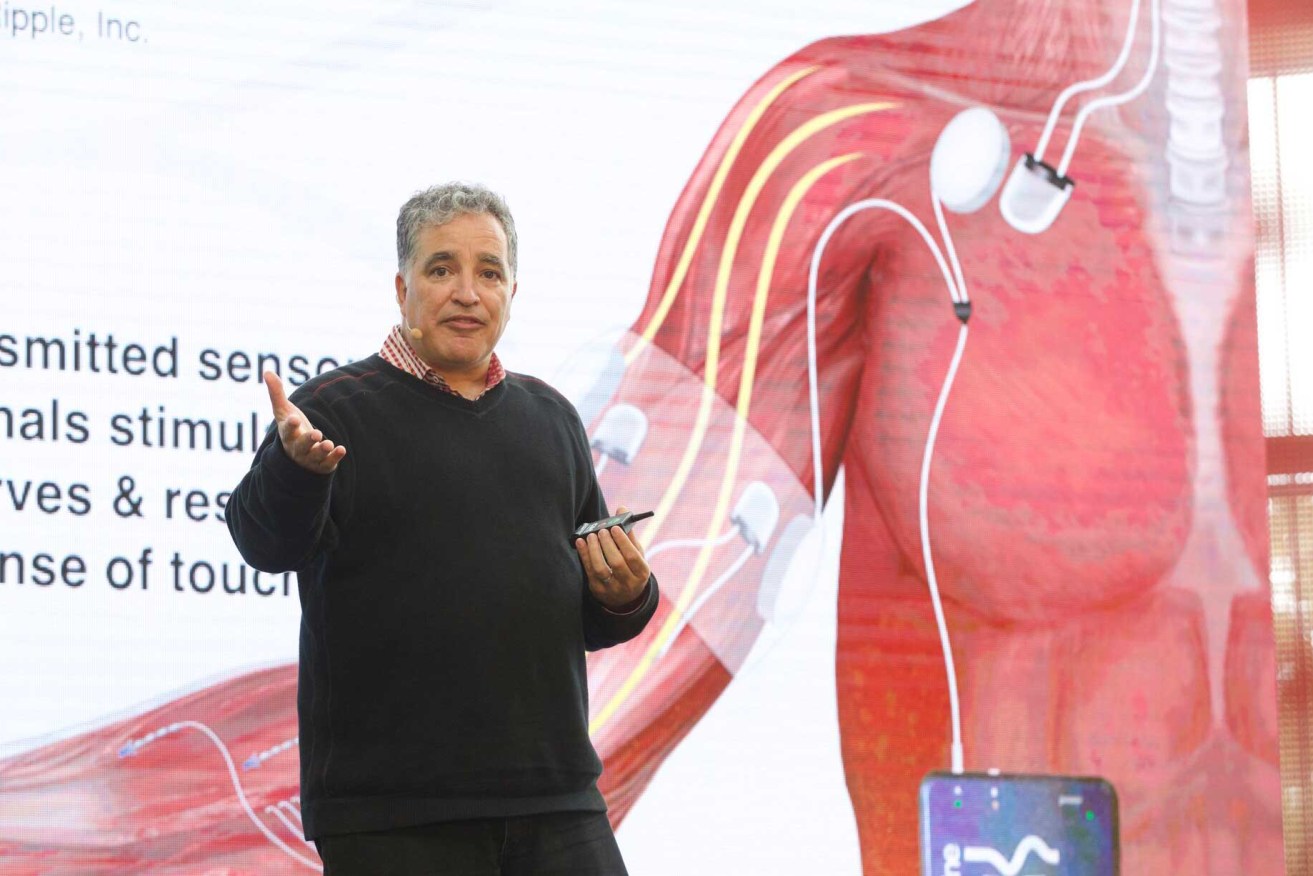Synthetic vision and hearing to be commonplace in the not-too-distant future
An American neural engineer speaking at this year’s Hybrid World Adelaide festival says researchers are two to three years away from installing synthetic vision and hearing in humans using the “next generation” of artificial intelligence technology.

Cortical.ai founding CEO Dr Phillip Alvelda
AI technology company Cortical.ai founding CEO Dr Phillip Alvelda says experiments are already being conducted on primates and the technology is expected to be commonplace within 30 years.
“It’s not a matter of if but when,” Alvelda said.
“The first technology implementations still involve cranium surgery where you open up the skull and you put an implant into the brain.
“That’s not going to be a device for the mass market by any means but it’s the first platform that will eventually become more common.”
Alvelda was involved in an earlier trial that used AI to wire war veterans’ prosthetic limbs with the brain to replicate the sensation of touch, pressure and temperature.
Researchers connected sensors to nerve endings and the end point of the veterans’ elbow stumps to give veterans the sensation that their prosthetic arms were real.
“We were able to figure out the codes of how we represent pressure and temperature and texture and the veterans who got these arms were saying, ‘this isn’t a prosthetic arm any more – it is my arm’,” Alvelda said.
“They were weeping about the fact that they were right-handed again after 10 years of being left-handed and losing their arm in the war.”
The new synthetic vision technology, which uses a less-invasive implant involving “a million interface channels”, will be first trialled on people with vision impairments.
Alvelda said the research was an indication of how AI technology is evolving to connect technology directly with the brain.
He said technology was evolving at such a rapid speed that society is now at the point where people are willing to give machines “life or death decision capability” without human supervision.
“Five years ago I would have said this technology could be available maybe in my kids’ lifetime but I’m starting to think that it’s going to be in my lifetime,” Alvelda said.
“We’ve reached the point where we’re about to have things like medical diagnostics where, if you get that wrong, the person could die or if you’ve got a self-driving car that’s two tonnes of steel going 90 kilometres per hour.
“In certain neuro areas AI has already surpassed humans, particularly when you talk about things like identifying faces or recognising words in sentences.”
Despite science fiction-fuelled fears, Alvelda said society always has the power to “pull the plug” on technology.
“This idea of singularity where all at once there’s going to be intelligence that accelerates and escapes our control, that doesn’t seem to be how things are progressing,” he said.
“It’s more like, we understand this little bit here today and it’s probably going to take us another couple of years to understand that little bit over there. It’s a pretty slow and steady approach (and) I don’t think it’s going to surprise anyone.”
But Alvelda admits concerns for privacy are “meaningful” and the law system and governments have been “a little bit lax” in ensuring technology is regulated.
“The laws and political structures have lagged the technology quite a bit,” he said.
“Things like impending regulation of Facebook are good steps to balance that equation a bit more rationally. GDPR (General Data Protection Regulation) has come in in Europe and people are still trying to assess if that’s a good law.
“There’s certainly work to do.”
Philip Alvelda is one of the key international speakers at the Hybrid World Conference, which runs from July 23 to 24.




